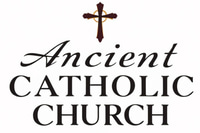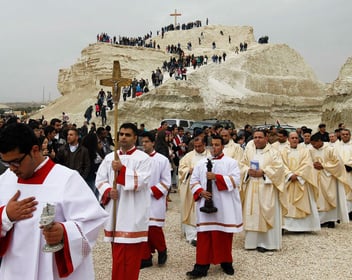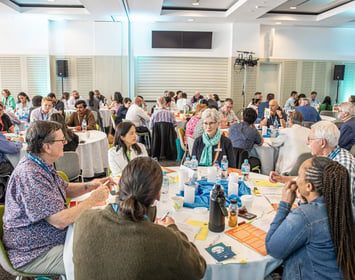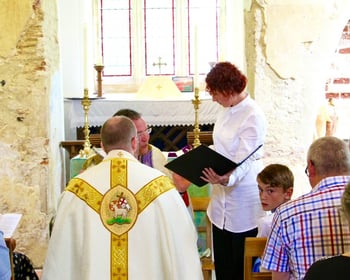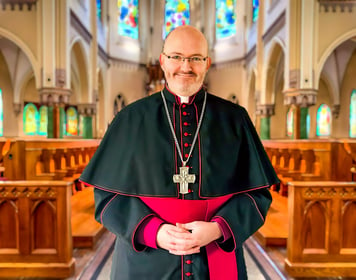
Mental Health Policy
We invite you to discover, belong, and journey with us in faith. Welcome home to the Ancient Catholic Church—where tradition meets mission, and community flourishes.
Policy on
Mental Health Support
Effective Date: 1st January 2024
Caring for Our Faithful
In an age defined by rapid societal change and technological advancement, mental health challenges are increasingly prevalent. Recognising this reality, the Catholic Church is called to extend compassion and kindness towards those who are suffering from mental health issues. This policy outlines our commitment to providing spiritual and practical support for our parishioners, counselling services, and community engagement initiatives aimed at fostering healing and resilience among our congregation.
The Vision of Our Church
At the heart of the Catholic faith is the belief in the intrinsic dignity of every individual, created in the image of God. Our mission is to reflect Christ’s love in the world, which includes embracing those who are struggling with mental health challenges. We seek to be a sanctuary for the weary and a source of hope for those who feel lost. Our goal is to:
1. Create a welcoming and understanding environment for individuals grappling with mental health issues.
2. Foster spiritual growth and healing through sacramental life and community support.
3. Promote education and awareness surrounding mental health within our congregation and the broader community.
4. Provide practical support to those in crisis, including spiritual guidance and counselling.
Responding to Crisis with Compassion
A Compassionate Outreach Approach
In our efforts to reach out to those in crisis, it is vital that unconditional love and respect underpin our initiatives. The following strategies articulate our commitment to being there for our parishioners in need:
Establish a Compassionate Outreach Committee: This dedicated group will be responsible for crafting policies, organizing events, and ensuring that mental health resources are accessible to all.
Train Parish Staff and Volunteers: We will provide regular training for priests, deacons, lay ministers, and volunteers on how to identify signs of mental distress, engage sensitively with individuals in crisis, and refer them to professional resources when necessary.
Implement Confidential Support Services: We will ensure that parishioners can seek help with the assurance that their privacy will be respected. This creates a safe space for vulnerability and honesty.
A Pastoral Response
The role of clergy in addressing mental health concerns is critical. Our pastoral response should encompass:
Regular Mental Health Awareness Sermons: Using the pulpit to educate parishioners about mental health issues can help reduce stigma, foster open conversations, and normalise seeking help.
Individual Spiritual Counselling: Our priests and trained lay ministers will offer one-on-one sessions for individuals seeking spiritual guidance. Pastoral care will consider both spiritual and mental health needs, integrating prayer and reflection with support.
Comprehensive Support Services
The Church recognises the need for comprehensive support services tailored to address the varied experiences of mental health in our community. Practical steps include:
Mental Health Resource Guides
Develop easy-to-access guides that list local mental health resources, including hotlines, counselling centres, and support groups. These guides will be made available in pews, our parish website, and community boards.
Support Groups
Form peer-led support groups for different demographics based on shared experiences, such as adolescents facing anxiety, families navigating mental illness, and adults dealing with grief or trauma. Support groups foster community connection and understanding.
Workshops and Seminars
Organise regular mental health workshops that cover topics such as stress management, mindfulness practices, and the relationship between faith and mental well-being. These sessions can be led by mental health professionals and faith leaders and aim to empower parishioners with tools for resilience.
Inclusion of Mental Health in Liturgical Practice
Include prayers for those experiencing mental health issues during Mass and special liturgical celebrations. Incorporate Mental Health Awareness Month into church programs, encouraging parishioners to pray and reflect on mental well-being.
Community Partnerships
Collaborate with local mental health organisations and healthcare providers to ensure our community has access to professional services. This partnership may include organising outreach events, health fairs, and information sessions.
Use of Technology
Use online platforms for virtual support groups, counselling, and mental health resources. Social media can be harnessed to share messages of hope, scripture that addresses mental distress, and information about upcoming events focusing on mental health.
Training and Education
Building a Culture of Understanding
For effective outreach in mental health, building a culture of understanding is paramount. This involves:
Educational Initiatives: Provide an annual workshop for parishioners that focuses on understanding mental health conditions, recognising signs of distress, and the importance of compassion and kindness.
Mental Health First Aid Training: Identify volunteers who can take certified mental health first aid courses. These individuals can serve as first informers during crisis situations.
Intergenerational Learning Programs: Engage various age groups in discussions around mental health, encouraging open dialogue across generations. This can promote understanding and supportive family dynamics.
Moving Towards a Healing Community
We recognise that our responsibility does not end with providing resources; it extends to creating an authentic community of healing. A community that fosters an atmosphere of acceptance and support encourages parishioners to seek help, knowing they are embraced without judgment. Initiatives include:
Community Reflections and Testimonials
Offer platforms where individuals can share their mental health journeys through testimonies and reflections. These narratives foster connection and solidarity within the community.
Celebration of Mental Health Awareness Days
Create initiatives to celebrate and recognise mental health awareness days. This promotes community involvement and normalizes conversations about mental health.
Ongoing Evaluation and Feedback
Regularly evaluate and adapt our mental health initiatives based on community feedback. An ongoing commitment to improvement reflects love and responsiveness to parishioners’ needs.
A Call to Action
The Church stands as a beacon of hope, compassion, and understanding in an often chaotic world. Our commitment to serving those experiencing mental health challenges is rooted in our faith and the teachings of Christ, who demonstrated limitless compassion. As we move forward, let us each take a step towards healing by fostering communities of kindness, enacting policies that facilitate practical support, and creating spaces where every person feels valued and understood.
Our collective response is paramount; let us continuously be attentive to the cries of our brothers and sisters who are suffering and stand ready to respond with love, compassion, and a spirit of service. Together, we can build a Church that is not only a place of worship but also a sanctuary of healing—a place where all can come to find solace in their faith and community.
Let us embrace our calling to support one another in every season of life, uplifted by the Lord’s grace and the abiding love of our community.
Date: 12th April 2024
Signed:
The Most Reverend Felix Gibbins OSB Cam
Archbishop of the United Kingdom




About the Ancient Catholic Church
Fostering faith, inclusion, and compassionate service within a vibrant community and beyond.
Who Are We?
The Ancient Catholic Church is a community that proudly carries forward the rich heritage of the Roman Catholic tradition while embracing a spirit of inclusivity and family.
Governance
The ACC operates under a structured and inclusive governance model that reflects its commitment to apostolic tradition, pastoral care, and community engagement.
Archbishop Felix Gibbins is the spiritual leader and Primus of the Ancient Catholic Archdiocese of the United Kingdom, and the seventh successor of St Felix of Dunwich.
Meet Archbishop Felix
Safeguarding Policy
Data Protection Policy
Spiritual Formation Policy
Our safeguarding policy reflects the Church’s mission to be a safe haven for all, especially children, young people, and vulnerable adults.
Dedicated to protecting the privacy and personal data of its clergy, seminarians, staff, parishioners, and associated parties in accordance with (UK GDPR).
The policy is intended to nurture a deep, authentic relationship with God and to prepare candidates for a lifetime of service steeped in the wisdom of the Church Fathers/
Ancient Catholic Church
Embracing faith, inclusion, and compassionate service together.
ST THOMAS AQUINAS SEMINARY
© 2025. All rights reserved.
QUICK LINKS
